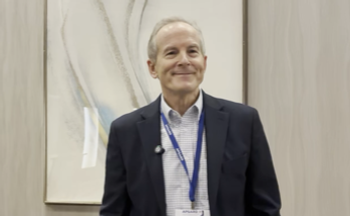
Addressing the Impulsive Side of Compulsivity (And Vice Versa)
Impulsive and compulsive behaviors intersect and commonly occur within the same individuals.
MENTAL HEALTH MINUTE
“Impulsivity” and “compulsivity” are 2 constructs that typify a range of disorder presentation. Impulsivity encompasses a predisposition toward poorly conceived actions, taking undue risks, and a lack of consideration when making decisions. Compulsivity is thought of as an inappropriate and maladaptive persistence of repetitive behavior, undertaken according to rigid rules and/or as a means of avoiding perceived negative consequences. However, when we examine co-occurrence of mental health disorders, we often see impulsive and compulsive disorders within the same individuals.
For example, rates of substance use disorders (typically considered impulsive behaviors) are considerably higher in people with body dysmorphic disorder (ie, a prototypical compulsive disorder) than in the population at large (49% compared with 29%). Conversely, rates of OCD (a compulsive disorder) are elevated relative to the general population in people with bipolar disorder (a disorder characterized often by impulsivity) (11% compared with 2%).1
Impulsive and compulsive problems are often examined separately as disparate constructs, but the co-occurrence and fluidity by which the two constructs may transition from one to the other suggest that some shared variance, and common brain mechanisms, may contribute to both. Thus, while impulsive and compulsive behaviors may exist in isolation, it also may not be uncommon for an individual to struggle with both drives simultaneously.
Features of impulsive and compulsive behavior when they co-occur may reflect a lack of control over thoughts and behavior and may suggest a trans-diagnostic ‘disinhibition’ phenotype.If true neurobiologically, then we need to think about treatment approaches to these co-occurring but perhaps atypically pared features and the treatments may need to target some shared underlying construct such as disinhibition.
Dr Grant is professor, Department of Psychiatry & Behavioral Neuroscience, University of Chicago. He spoke at PsychCongress in a presentation titled "When Trouble Strikes Twice: Addressing the Complex Needs of Patients with Both OCD and Mood Disorders."
Reference
1. Grant JE. Clinical practice: Obsessive-compulsive disorder. N Engl J Med. 2014;371(7):646-653. doi:10.1056/NEJMcp1402176
Newsletter
Receive trusted psychiatric news, expert analysis, and clinical insights — subscribe today to support your practice and your patients.







